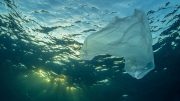As celebrations gear up for World Environment Day on 5 June, delegates and policymakers connect with India’s business sector and innovators to explore how to beat plastic pollution, at the World Environment Day Exhibition at the Vigyan Bhavan convention centre in Delhi.
World Environment Day is the UN’s most important day for encouraging worldwide awareness and action for the protection of our environment. Since it began in 1974, it has grown to become a global platform for public outreach that is widely celebrated in over 100 countries.
“Beat Plastic Pollution”, the theme for World Environment Day 2018, is a call to action for all of us to come together to combat one of the great environmental challenges of our time. The theme invites us all to consider how we can make changes in our everyday lives to reduce the heavy burden of plastic pollution on our natural places, our wildlife and our own health.
As hosts to this year’s World Environment Day, Indian communities large and small will lead a global charge to beat plastic pollution through civic engagement and celebration. With support from an inspiring cross section of Indian society, ranging from cricket pitches to board rooms, we’re witnessing an unprecedented national commitment to this global cause, with the promise to make this the largest and most consequential World Environment Day ever.
The five-day exhibition features dialogue series, information booths and high-level discussions focused on the various facets of plastic, from its many irreplaceable uses in industries like construction, the medical field, and the food industry, to the issue of single-use plastics and the need for sustainable alternatives.
“The problem lies with the way we consume and dispose of plastic,” said Shri Raghavendra Rao from India’s Ministry of Chemicals and Fertilizers. “In India today, 45% of plastics produced are single-use. That is a major problem.”
Thanks to waste pickers, recycling levels in India are relatively high, sixty of plastic as of today is getting recycled in India, but more must be done to support the large informal sector of waste pickers recycling plastics – and reduce waste.
Ashok Khosla, Founder and Chairman Development Alternatives, a social enterprise focused on sustainable development emphasized that solutions to tackling plastic solution need to be multi-faceted: “You can’t outright ban plastics because they are so important in our lives. Clearly, plastics are here to stay.”
Aruna Sharma, from India’s Ministry of Steel, touched upon the potential of stainless steel alternatives to plastic: “Steel goods last at least 100 years, and can be part of a more holistic solution if how they are manufactured is also zero-waste.”
Plastic pollution – Key Facts:
- This year alone, global manufacturers will produce an estimated 360 million tonnes.
- In the next 10-15 years global plastic production is projected to nearly double.
- Production is scheduled to reach 500 million tonnes by 2025 and a staggering 619 million tonnes by 2030.
- Avoiding the worst of these outcomes requires a complete rethinking of the way we produce, use and manage plastic.
- The most common single-use plastics found in the environment are in order of magnitude, cigarette butts, plastic beverage bottles, plastic bottle caps, food wrappers, plastic grocery bags, plastic lids, straws and stirrers, glass beverage bottles, other plastic bags, and foam take-away containers. .
- The Asia-Pacific Economic Cooperation (APEC) estimated at 1.3 billion USD the economic impact of marine plastics to the tourism, fishing and shipping industries in that region alone.
- In Europe alone, the estimated costs for cleaning shores and beaches reaches €630 million per year (European Commission, 2015), and studies suggest that the annual economic damage of plastic to the world marine ecosystem is at least 13 billion USD (UNEP, 2014)
- Of the 24 African countries having introduced national bans on plastic bags, more than half (58%) have been implemented between 2014-2017
Plastic pollution – Key Figures:
- Up to 5 trillion plastic bags are used each year
- 13 million tonnes of plastic leak into the ocean each year
- 17 million barrels of oil used on plastic production each year
- 1 million plastic bottles bought every minute
- 100,000 marine animals killed by plastics each year
- 100 years for plastic to degrade in the environment
- 90% of bottled water found to contain plastic particles
- 83% of tap water found to contain plastic particles
- 50% of consumer plastics are single use
- 10% of all human-generated waste is plastic
For news, stories and events around World Environment Day and Plastic Pollution, please visit: www.worldenvironmentday.global





